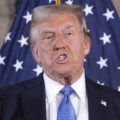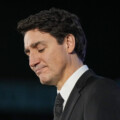In The Weekly Wrap Sean Speer, our editor-at-large, analyses for Hub subscribers the big stories shaping politics, policy, and the economy in the week that was.
The politics of weird
The weirdest political development this week was when American progressives started calling conservatives like vice-presidential candidate JD Vance “weird.” It’s a weird criticism from a political movement that itself is rather quite weird.
The inherent tendency of left-wing politics to set itself up in tension with society’s prevailing institutions, hierarchies, and norms means that it’s historically been a countercultural movement. Its own self-image is transgressive—which is to say, weird.
Conservatism, by contrast, as the contingent defender of long-standing ideas and institutions, has tended to be less radical and in turn less weird.
These differences are fundamental to the intellectual DNA of the two sides of our political debates. American political scientist Yuval Levin’s 2013 book, The Great Debate: Edmund Burke, Thomas Paine and the Birth of Right and Left, persuasively makes this case. Burke and Paine’s divergent responses to the French Revolution were symptomatic of these enduring dispositional differences.
Although it’s true that the recent dominance of left-wing voices in key institutions (such as governments or universities) has jumbled these categories a bit—one increasingly hears calls in conservative circles not merely to conserve these institutions but to remake them—, the notion that transgression has shifted from the Left to the Right is overstated.
Whatever one thought of the Freedom Convoy, it couldn’t possibly match the breadth or influence of progressive activists in our society. And even in those cases where conservatives have been inclined towards more radical means (think for instance of Florida’s higher education reforms), their ends are typically about restoring institutions to their mainstream missions. One side wants to redefine biology. The other wants students to learn a bit more about the redeeming parts of our history.
This isn’t to contest the notion that there are weird people on the Right. And it’s definitely gotten weirder in the Trump era. But its weirdness should be mostly understood as a reaction to growing weirdness on the Left. As I’ve written before, the past ten years or so have been marked by a dialogue between the excesses on both sides but with progressives far out in front on issues of culture, identity, and sexuality.
From weird to wacko
It’s been interesting to observe the American debate about weirdness from Canada where the argument has essentially been flipped. Conservative Party leader Pierre Poilievre has recently accused his progressive opponents, including the prime minister, of being “wackos.” His basic argument is that they’ve subjected Canada to a grand policy experiment with weird ideas and poor outcomes.









